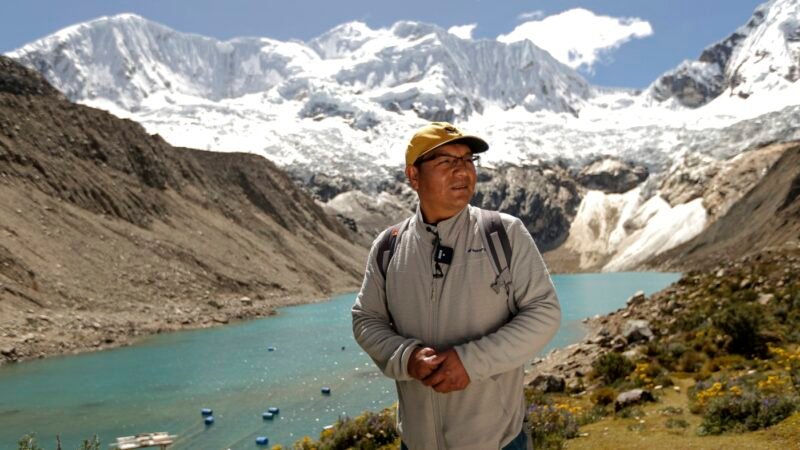Top Highlights
-
Lawsuit Outcome: Saúl Luciano Lliuya, a Peruvian farmer, lost his climate change lawsuit against RWE, a major European power company, due to insufficient evidence of imminent risk to his home from a melting glacial lake.
-
Claim Rationale: Lliuya sought $18,000 from RWE, citing the company’s historical carbon emissions as contributing to the glacial melt threatening his city, despite RWE having no operations in Peru.
-
Court’s Ruling: The German court determined that the likelihood of the lake flooding was over 1% in the next 30 years, which did not meet the legal threshold for liability in Germany.
- Significance for Future Litigation: Although the case was dismissed, Germanwatch views it as a partial victory, establishing a precedent for future climate-related lawsuits against companies based on their carbon emissions.
Peruvian Farmer Loses Landmark Climate Case Against German Energy Giant
LIMA, Peru — A Peruvian farmer and mountain guide has lost a significant climate change lawsuit against RWE, one of Europe’s leading power companies. Saúl Luciano Lliuya, who resides near the Andes, argued the company’s greenhouse gas emissions threatened his community by increasing the risk of flooding from a glacial lake.
Despite RWE’s lack of operations in Peru, Lliuya maintained that its emissions contributed to the melting glaciers endangering his city. Recently, a German court determined that the likelihood of the lake overflowing and causing damage to Lliuya’s home, along with 50,000 others, was too low for RWE to be held liable. The ruling also prevents Lliuya from appealing the decision.
The lawsuit spanned over ten years. During this time, Lliuya sought approximately $18,000 from RWE to cover a part of the costs for building a protective dyke. This amount corresponded to RWE’s proportion of total historic carbon emissions, as indicated by the environmental group Germanwatch.
Despite the loss, Germanwatch views the case as a partial victory. The organization emphasizes that the court recognized the risk posed by Lake Palcacocha, which has swollen dramatically and could still overflow if an avalanche occurs. The court found, however, that the probability of such an event happening in the next 30 years is just over 1%, making it insufficient for RWE’s liability under German law.
RWE has shifted focus towards renewable energy and aims to achieve carbon neutrality by 2040. However, the company spent more than a century running coal-fired power plants. Its statement following the verdict cautioned that a ruling against it might provoke widespread claims against German companies regarding climate change impacts globally.
This case is part of a rising trend of climate-related litigation aimed at major industries. Experts note that while Lliuya lost, the legal acceptance of climate claims based on German property laws opens the door for future litigation against corporations for their role in climate change.
This legal landscape reflects a critical intersection between environmental activism and corporate accountability, potentially shaping how companies engage with climate policies. As global concerns about climate change continue to grow, this case highlights the complex relationship between industrial emissions and local vulnerabilities, paving the way for further discussions about technological innovation and sustainability.
Expand Your Tech Knowledge
Explore the future of technology with our detailed insights on Artificial Intelligence.
Explore past and present digital transformations on the Internet Archive.
SciV1

